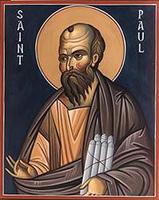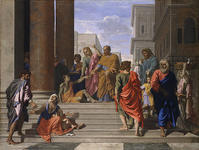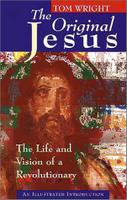I read this statement at a recognizable blog promoting a Christian doctrine: "Instead of calling us to social reform/justice, he ought to go back to the Bible and proclaim the truth found there and live it out as we all should."
Now I am not a Bible expert but I am pretty sure justice for the oppressed in our society (social justice) is not just suggested but it is mandated for the follower of Christ. I used to be one who would snark at this and consider thinking right as more important then I took a course on Amos with Paul Evans which changed my outlook.
There is a passage their I first want to go to.
Amos 1 and 2 deals with Punishment for most of the Ancient near east until it gets to the Elect - Israel. A simple read of 2 shows that Israel (held to a higher calling set up in Exodus 19:6 as well as the covenants with Abraham in Genesis 17ff.) is not doing this but oppressing the poor
2:6 reads...
Because they sell the righteous for money
And the needy for a pair of sandals.
7 “These who
pant after the very dust of the earth on the head of the
helpless
Also
turn aside the way of the humble;
And a
man and his father
resort to the same
girl
In order to profane My holy name.
8 “On garments
taken as pledges they stretch out beside every altar,
And in the house of their God they
drink the wine of those who have been fined. Or trample or, snap at the head of the helpless on the dust
Now not all the stuff is about the poor but most of it is. Motyer Commentary is a good one to read on this.
Wow simple right but no this is the Old Testament they were saved by works not faith - (satirical)
James 2:6-9
Listen,
my beloved brethren: did not God choose the poor
of this world to be rich in faith and heirs of the kingdom which He promised to those who love Him?
6 But you have dishonored the poor man. Is it not the rich who oppress you and personally
drag you into
court?
7
Do they not blaspheme the fair name by which you have been called?
8 If, however, you
are fulfilling the
royal law according to the Scripture, “You shall love your neighbor as yourself,” you are doing well.
9 But if you show partiality, you are committing sin and are convicted by the
law as transgressors.
Wow simple eh... I could go to 1 Peter, or 2nd Cor or The Sermon on the mount the Psalms and a bunch more minor Prophets to show but here lets look at what one person (whose Relgious Affliliation I do not know) said well actually is doing.
"I'm challenging guys on every NFL team, except the Saints, to donate at least $5,000 to help people come back from this catastrophe. If we get players to do that, that would amount to $260,000 per team. I have heard from so many players both on my team and around the league who just want to do something. Well, this is the best thing that we can do and it's something we should do." Warrick Dunn




